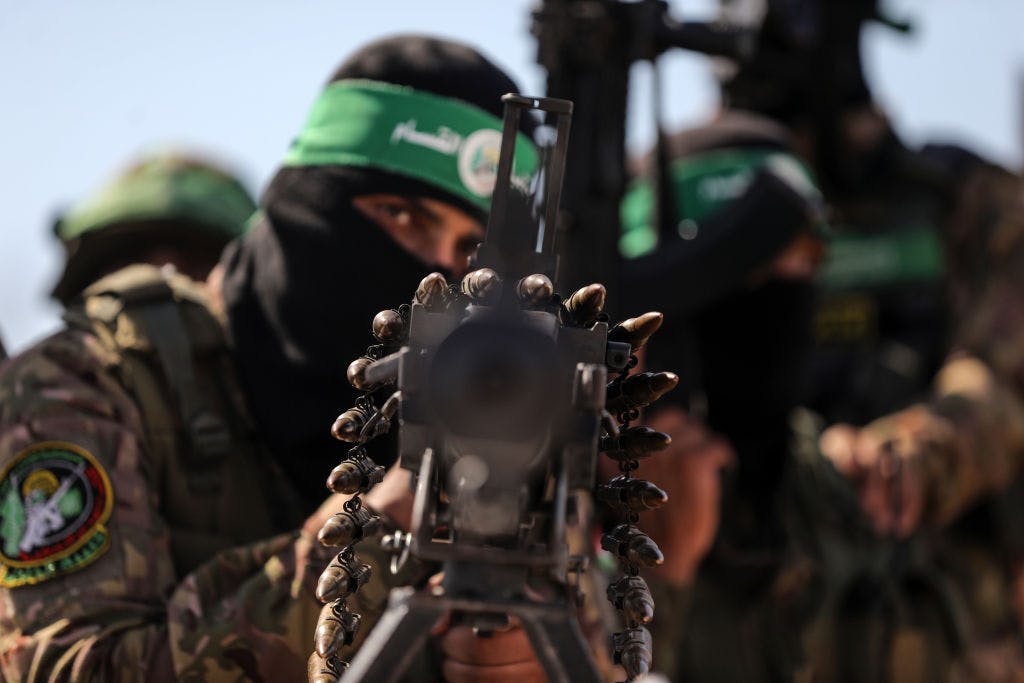Published: 29 February 2024
Last updated: 21 March 2024
Israel and Hamas both have good reason to want a deal by Ramadan but neither shares the optimism expressed by US President Joe Biden this week.
The start of Ramadan on March 10 offers several incentives for a ceasefire deal that would see the release of Israeli hostages in exchange for Palestinian prisoners. But despite President Biden’s optimism this week, both sides say negotiations may well drag on into the holy month.
A carrot for Hamas is the opportunity to leverage Israel's release of Palestinian prisoners to the joy of the holiday to galvanise public support for its battle.
A stick is the looming invasion of Rafah. War cabinet member and former IDF chief of staff Benny Gantz has already named the start of Ramadan as the deadline for Rafah if the hostages are not released.
On the Israeli side, the carrot is what may be a singular opportunity to bring the hostages home.
The stick is the fear that Ramadan will exacerbate threats both from external enemies and from the Palestinian population within Israel. Defence Minister Yoav Gallant said this week that Iran, Hezbollah and Hamas are aiming to turn the Muslim holy month into “the second stage of October 7, and ignite the ground”.
On Wednesday, Hamas called on Palestinians to march to Jerusalem's Al-Aqsa Mosque at the start of Ramadan, raising the stakes over the area already inflamed by restrictions on Muslim access during the holy month.
For both sides, there is the knowledge that these incentives are time-limited. If they don't manage to reach a deal during Ramadan, the likelihood of either a ceasefire or hostage release may slip away.
The state of negotiations
A series of leaks about possible formats for a deal reveals that there are no significant gaps between the sides on the question of how the hostages will be freed. This would apparently happen in at least two stages, accompanied by a lengthy ceasefire.
In the first stage, Hamas would likely release women, the elderly, the sick, and the wounded, as it did during the previous hostage deal. Israel would also like the five female soldiers in captivity to be included in this stage, so that no women will be left in Hamas' hands. The other hostages – young men, soldiers, and the bodies of those who have died – would be released later, in one or more instalments.
The disagreements between the sides revolve mainly around other issues – the ceasefire, the redeployment of Israeli troops, allowing Palestinians to return to the northern Gaza Strip and the identity of the Palestinian prisoners Israel would release.
Israel's main fear, which is shared by the mediators, is that Hamas won't abide by the agreement and will blow it up after releasing only some of the hostages. "Hamas is a terrorist organisation," a senior Israeli official said. "It broke the previous agreement when it refused to release the final group of women and children."
Biden’s optimism ‘premature’
Israeli and Hamas officials have downplayed hopes expressed by Joe Biden that a ceasefire in the war in Gaza is imminent.
Basem Naim, the head of Hamas’s political division in Gaza, said over WhatsApp on Tuesday that the Palestinian Islamist movement had not yet formally received a new proposal for a ceasefire since last week’s indirect talks in Paris mediated by the US, Egypt and Qatar.
He said the US leader’s remarks late on Monday that a temporary truce could be implemented as soon as March 4 were “premature” and did “not match the reality on the ground”. Ahmad Abdel-Hadi, a Hamas representative in Beirut, also told a Lebanese broadcaster that significant progress on a deal had not been made.
Israeli officials, speaking on condition of anonymity, told Reuters that Biden’s comments came as a surprise and were not made in coordination with the country’s leadership. Hamas was continuing to push “excessive demands”, they said.
READ MORE
Where do the hostage release, cease-fire talks between Israel and Hamas stand? (Haaretz)
Hamas and Israel pour cold water on Biden’s hopes of imminent ceasefire (Guardian)
Hamas raises stakes in Gaza truce talks by calling for Ramadan march (Reuters)
Gallant: Iran, Hezbollah, Hamas hope to turn Ramadan into ‘2nd stage of October 7’ (Times of Israel)





Comments
No comments on this article yet. Be the first to add your thoughts.